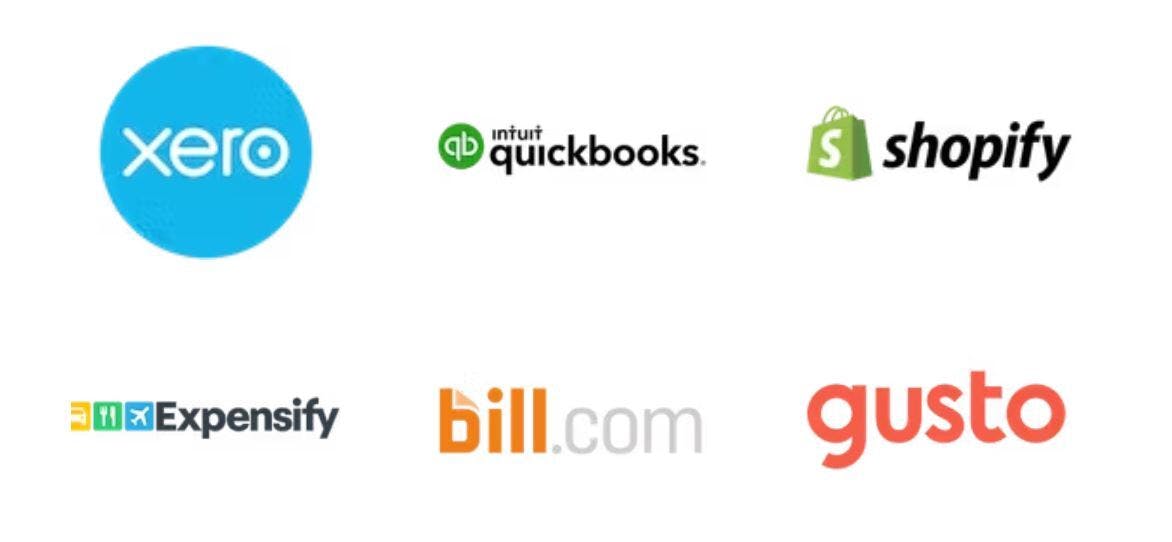
Billable expense income is used for the additional goods and services your business accumulates and spends on your new and existing clients.
For example, during day-to-day business, your sales team may require regular travel to and from clients, materials, and other direct costs to fulfill your client's requirements.
Along with your standard monthly invoices, your company can add additional costs on top of the standard invoice, which will cover these specific expenses.
In other words, it acts as a reimbursement for the additional costs incurred by your company to fulfil your client’s needs. Billable expense income practices are dominant in industries where client meetings and sales teams are popular, as well as businesses that ensure direct costs associated with client satisfaction.
At Hall Accounting, our main goal is to assist your business with properly tracking your expenses and to ensure your financial management and reporting are accurate.
Here are some steps that help us, help you:

Courtesy of Freepik
Track Billable Expenses: Efficient Strategies for Financial Control
We have numerous effective strategies to help manage your billable expense income, which, in the long run, ensures your business gets the correct reimbursement for the costs you incur on behalf of your clients.
Accounting Software: At Hall Accounting we use multiple software programs to suit all our client’s needs, which means we have the perfect software for you. We utilize client engagement software such as QuickBooks, Xero, and even Gusto to help you track all your different kinds of expenses.
Establishing a Systematic Process: As soon as we have the correct software for your company, we start devising a game plan to record all your billable expenses. During this process, We will assist you in categorizing expenses with standardized codes and create a formal approval process.
Capture Receipts Digitally: With your software fully set up and your standardised process set up, you will need to start with training your employees. Having your employees scan your receipts into an app or a folder will reduce the chances of losing the receipts, and it also simplifies the documentation process. Have your sales representatives make a habit out of scanning their dinner receipts to the finance director before throwing them at the bottom of their briefcases, which is simple and effective.
Integrate your Tracking with Project Management: Along with your tracking system, we can integrate your expenses with your project management tools, which will ensure that your expenses match perfectly with each client, and each project. This will simplify the billing process and your financial reports.
Regularly Reconcile Expense Accounts: It’s good practice to schedule regular reconciliations to make sure everything that gets recorded aligns with the transactions. Processes like this help identify any discrepancies early and help us provide accurate financial reports.
Implement Credit Card Integration: Consider integrating corporate credit cards for the staff that do the regular spending on the clients. This way, we can sync the credit cards to your software and automate the credit card transactions, making the reconciliation process much easier.
Set Clear Expense Policies: Set a clear policy with your staff and limit the billable qualifying expenses. Provide a clear guideline to your employees to show what counts as billable expense income and what does not, including the requirements of documentation and the approval process.
Automate Expense Approval Workflows: Always ensure your expenses are appropriately reviewed and approved before billing to a client. We will aid you in setting up the correct approval workflow to avoid incorrect billing.
Regularly Review and Update Processes: With finances, we frequently review and update the processes to ensure we stay up to date with everything that is changing around us. We will even move you to an upgraded or different software depending on how much your business grows, possibly even integrating a different software with your original one.
Train Employees: Lastly and most importantly, train your employees on the different expenses, when to load their expenses, and the importance of loading everything on time. Educating them on the variety of tools we have to offer helps with the expense tracking system.
With all these strategies combined, your company and Hall Accounting can establish a strong system for tracking billable expenses. This kind of system will assist with reducing errors and enhance the overall efficiency of your financial process.
Now that we have your strategies, we can start with the fun specifics. For example, do you know the specifics that form a part of your billable expenses?

Courtesy of Freepik
Behind The Scenes: Which Costs Are Considered Billable Expenses
There are many instances where businesses are losing out due to the funds they choose to spend on their clients, never realizing that most of it can be reimbursed by the clients themselves, granted that you’re transparent in your contract with the clients and your invoicing.
Firstly, you would have to identify your client-related costs associated with the specific clients, this is where we assist you with categorizing and planning. (See point 2 above).
Once this has been done, you have to communicate transparently with your clients, this way you build more trust and also minimize future disputes, for any transactions we do recommend having a contract in place. This will ensure the financial safety of you and your client. As for what exactly you can bill, let’s get into that:
Travel Expenses
As any business grows, you would consider hiring new staff such as sales representatives, or your director teams require onsite meetings, for teams like this to go to the clients and excel and their jobs, they would need to travel to where your clients are based. Whether it’s to the next city, town, or a different country. Expenses such as fuel, airfare, bus tickets, etc. can be billed to your clients as a billable expense. In some states, there are strict laws regarding employee reimbursement for expenses incurred during work. Check IRS regulations and procedures to avoid legal action.
Preparation and Research
For you and your client to effectively work together, you would need to do extensive research and planning regarding their business and your future projects. This includes time and labor. If included in the contract, your preparation and research can be billed as additional performing market research expenses.
Client Communication
We all use our cell phones and laptops these days, however, to stay connected, we do require data and airtime. Fees such as this fall under your business administrative fee that you can charge for consultations on billable hours. This enables your sales team to have conversations with prospective and existing clients about the strategies and all your plans for their projects for the future.
Materials
Any kind of materials that you use on behalf of your client can be billed as an additional expense. For example, freelance web designers may bill software licensing as their billable income expense or a small catering company could pay for the additional event supplies. Also always ensure to add shipping costs to your client’s invoices. In cases like this, the client is liable for the costs, since they are the ones that bought the items. Make sure to note these instances on your invoicing.
Payment Processing Fee
Many businesses take payments through digital platforms, this creates online payment processing fees which you can bill back to your client on the invoice as an item. One example of an online processing fee could be newsletter subscriptions. Your entire organizaion pays for the subscription, however, it’s essential to keep the invoices for each client separate, to ensure you bill the processing fees accurately.
Advertising Opportunities
From a financial point of view, if you are taking on the world of advertising as a business or as a freelancer, you are entitled to bill your clients for the small goods you use to create the projects you work on. Whether it be office supplies, creative licensing, and time spent researching.
It’s always good to understand what you can bill as additional expenses and what you are not able to bill. Let’s take a look at the items not billable.

Courtesy of Freepik
Our Favourite Accounting Tools to Help You
At Hall Accounting we use a variety of software to help you with managing billable expense income. Having all these user-friendly tools in the palm of your hand makes your financial burdens lighter.
From Xero to Hero
Xero has an incredibly easy-to-use interface, along with cloud-based features. This app is perfect for our small business owners to track all your purchases incurred. It allowed for real-time collaboration, business expenses, and incredible reporting.
The Lifesaver QuickBooks
An ultimate client favorite software program will have to be QuickBooks. It allows you to pull your income statements from the app directly. With features like this, it streamlines your invoicing, your payments, and your reporting.
Automatic Billing with Bill.com
Bill.com is known for its super smooth automatic system. We recommend it to our businesses that run at a fast pace with their accounts payable and receivable coming in and out at a rapid speed. Bill.com makes general expenses seem like a walk in the park!
Your Little Shopify
We know Shopify is mainly used as an e-commerce platform as a client engagement system. For our small business clients, we highly recommend using this as one of your software. However, along with the e-commerce section of this mind-blowing platform, comes the ability to integrate it with other software such as Xero and QuickBooks. That means while you are running your small business site online through Shopify, QuickBooks or Xero help by running your finances in the background. It’s a beautiful friendship.
It’s More Than Just Your Billable Expense, It’s Expensify
If you are interested in going into the depths of your expenses, knowing all the ins and outs and tracking all the nitty gritty details alongside Hall Accounting, Expensify is the software for you. This software is simple, yet it allows you to extensively track all your expenses in meticulous detail with transparent billable expense income tracking.
The Gusto Way
Gusto is the ultimate software for your payroll and HR services, it integrates seamlessly into the other software we utilize, which creates financial freedom for any small business owner.
At Hall Accounting. we use all of these software platforms and aim to integrate the ones that match your business perfectly. They perfectly assist with real-time collaboration, smart expense categorization, detailed reports, and many more.
We urge you to seize the opportunity now to optimize your finances. Together we can embark on a wonderful journey of business financial health and position your business for incredible success. Only you hold the power to elevate your financial success, and Hall Accounting can help you take charge.
We invite you to take immediate action.
